Building community within and among Employee Represented Groups (ERGs) fosters a sense of belonging and allyship. Members of CWB’s ERGs say it’s one significant reason why these groups have surged in recent years. Eleven exist today and each provides a potent opportunity for meaningful collaboration and growth.
Canadian Multiculturalism Day (held annually on June 27) is one observance that touches multiple ERGs. It unites the diverse backgrounds that exist at CWB, and the day serves as a time to celebrate and reflect as one CWB team.
Below, the leads and co-leads of several CWB ERGs chat about what this day, and ERG cross-collaboration, means to them. They explain why there’s power in creating a diverse and inclusive community of cultural acceptance, openness, and curiosity at work.
Around the table are:
Sumira Duggal and Khaled Dahrouge – co-chairs of CWB Global: Newcomers to Canada and Allies

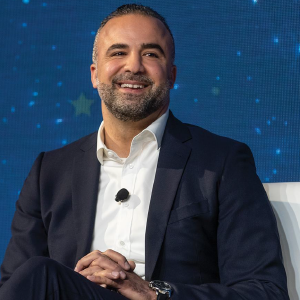
Mitch Estrada and Percy Garcia-Canessa – co-chairs of CWB HOLA: House of Latin America

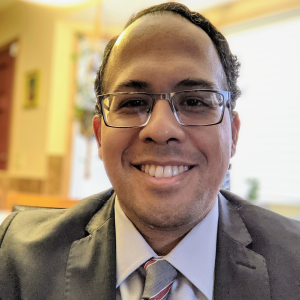
Seun Williams – chair of CWB NOBLE: Network of Black Employees and Allies
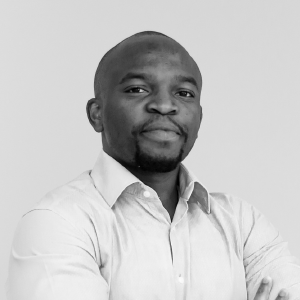
Ann Wong – co-chair of CWB ASPIRE: Asian, South Asian, Pacific Islanders Rallying for Equality
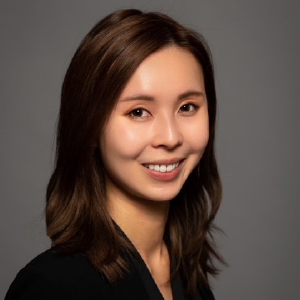
Malvika Kathpal – CWB Inclusion and Diversity Specialist
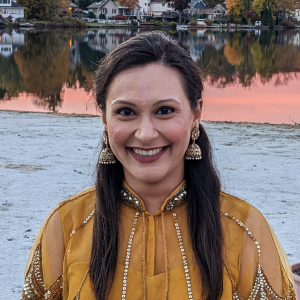
Food for thought from CWB Employee Represented Groups
Sumira: “There's a richness to the diversity we have among CWB employees – be it through food or traditions or sharing stories. Multiculturalism Day is an opportunity to acknowledge the differences, but also the sameness, across our cultures. As a newcomer, it’s a great way to feel welcomed and part of the broader culture, as well as to celebrate the uniqueness that each individual brings from their respective cultures and traditions to Canada.”
Khaled: “Exactly, it's about embracing your culture and bringing it to work so people know what is unique about you.”
Mitch: “Yes, it’s a chance to celebrate our cultures, our food, our music, and our history – and share that with CWB as a whole.”
Percy: “Food is a big part of coming together, from my perspective. Sharing food creates a welcoming space to share conversation, thoughts, challenges, and successes.”
Seun: “It’s so true. NOBLE aims to create a comfortable space for Black Employees and Allies to learn and grow from shared experiences and perspectives. We recently organized a virtual event where we asked teammates to share recipes from their culture. We realized that within our community we have the same food... but we call it different things. So, okra, for example, is a Caribbean dish. But it's also an African dish made very similarly. And so, we understand that food is a really great connector. It’s a way to talk about our heritage, and it’s also a powerful icebreaker for tough conversations.”
Mitch: “Exactly. So, my family came from Cuba. When I'm here in Canada, people might not see me as a Canadian, even though I was born here. When I'm in Cuba, people might not see me as Cuban because I live in Canada. In coming together with others – like over food – we start chatting and realize that others have similar experiences and feelings. And from that conversation you start seeing what else you have in common.”
Percy: “That’s a great example of how one person sharing their culture might encourage someone else to share aspects of their culture. It can create a snowball effect, and I think that's one of the wonderful things about multiculturalism. It can bring people together through knowledge and awareness, not only of your similarities, but also of your differences.”
Sumira: “I think to become a better colleague, to provide a safe space for people coming from different cultural backgrounds, you need to approach everything, including yourself, from a place of curiosity rather than judgement. Because curiosity leads to understanding, whereas judgment creates walls.”
Seun: “And there can be many different cultural experiences within a community. From a Black experience lens, within our community we have Black people who recently immigrated to Canada. And Black people who were born here. And Black people who have Caribbean descent. And Black people who are of African descent, or who were born in Africa and then came here. Those are all different experiences to learn and celebrate.”
Ann: “For me, being accepted for who you are, without judgement, helps to create a respectful and safe place for people to share and learn about different cultures. And that includes ERGs connecting and working together – for example ASPIRE also worked with Global on programming for Asian Heritage Month. Collaboration among ERGs on overlapping interests and values is so important because it combines forces and creates synergies to build richer experiences and a more meaningful impact for our members.
Malvika: “I couldn’t agree more. The purpose of ERGs is to build a community; it's never the intention to create silos. We try to look for opportunities throughout the year where there's a natural place for ERGs to work together – to dig deeper into that intersectionality. Different ERGs exist to represent one facet of your identity, and so you could belong to several ERGs. For example, I'm a woman. I'm a South Asian. I am a newcomer to Canada. I used to be a disability support worker and I struggle with my mental health. And so, I belong to several ERGs that uniquely represent different facets of my identity. When we come to find representation for those facets of our identity at work, that is a beautiful concept.”
Mitch: “The number of ERGs has really grown over the past few years and that’s exciting. I think part of that is because people are seeing the value ERGs bring to the workplace – creating a safe space and breaking barriers and misconceptions or stereotypes. What appeals to me about joining ERGs is a sense of belonging that comes with it and the ability to have a voice within the company on something that matters so personally to me.”
Percy: “Building on what Mitch just said, I joined HOLA because my heritage, traditions, values, and beliefs are important to me. The country I come from and my culture have shaped who I am today. And so, HOLA allows me to share my culture and the many unique aspects of it with others. For example, when we commemorated Latin American Heritage month, it gave HOLA visibility to the organization, and I felt like we were able to share a glimpse of our Latin American culture with our colleagues. By shining a light on our culture and the historical events our ancestors went through – which includes not just the triumphs, but also the challenges – we’re bringing cultural awareness and education to work. I’m grateful to be part of that.”
Sumira: “I love that. And in an ERG, you can be a focus and you can also be an ally. When ERGs share days like Canadian Multiculturalism Day, we all become allies for each other and that’s really powerful. One of the beautiful things about ERGs is that they are grassroots, employee-driven vehicles for change. Our membership has the opportunity to drive what that transformation looks like. The power is really in the members’ hands – it's bottom up, rather than top down. As we look to further mature the ERG experience, I think it’ll be about really empowering our membership to speak up and say we need to do this, or there’s a gap here, and then together owning that drive for change.”
Khaled: “ERG initiatives have such a valuable place at work. Coming to a new country, you might feel like to be successful here, you have to abandon who you are. You have to be this other person at work that's different from who you are at home. The efforts of ERGs, celebrating Multiculturalism Day with fellow employees – I think this is about really embracing who you are, bringing all of you to work, and being accepted as you are."
Malvika: “Beautifully said. In my role, I often talk about bringing your whole self to work. To Khaled’s point, that means who you are at home shouldn’t be different from who you are at work. I believe that if I can't bring all parts of myself to work, then you also can't get the best out of me at work. And so, I think it’s important to create and support a work environment where multiculturalism is recognized and spoken about – one where who you are in your entirety, in your authenticity, is both welcomed and celebrated.”